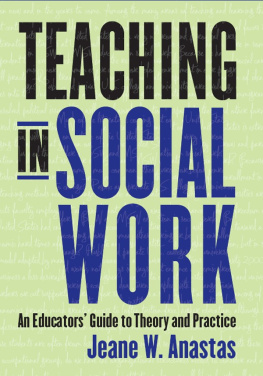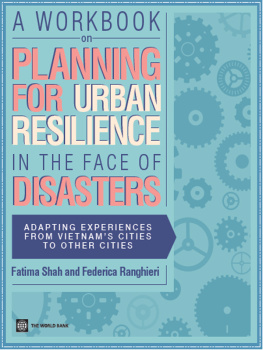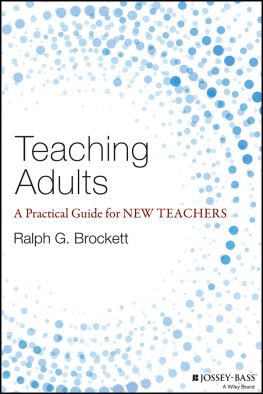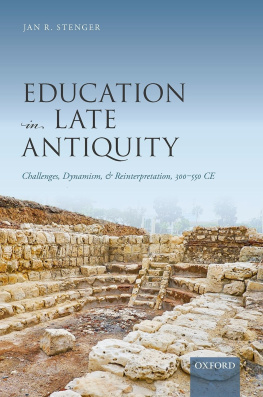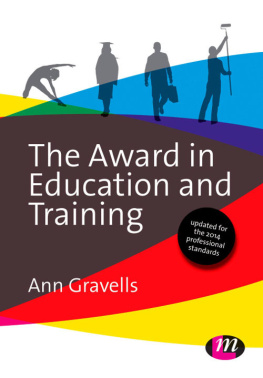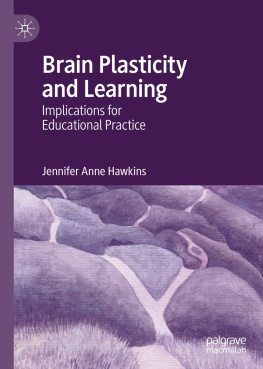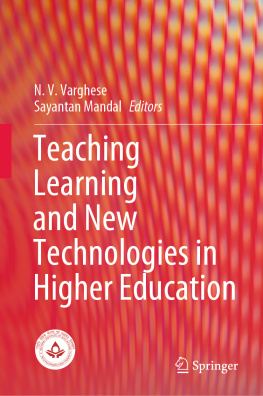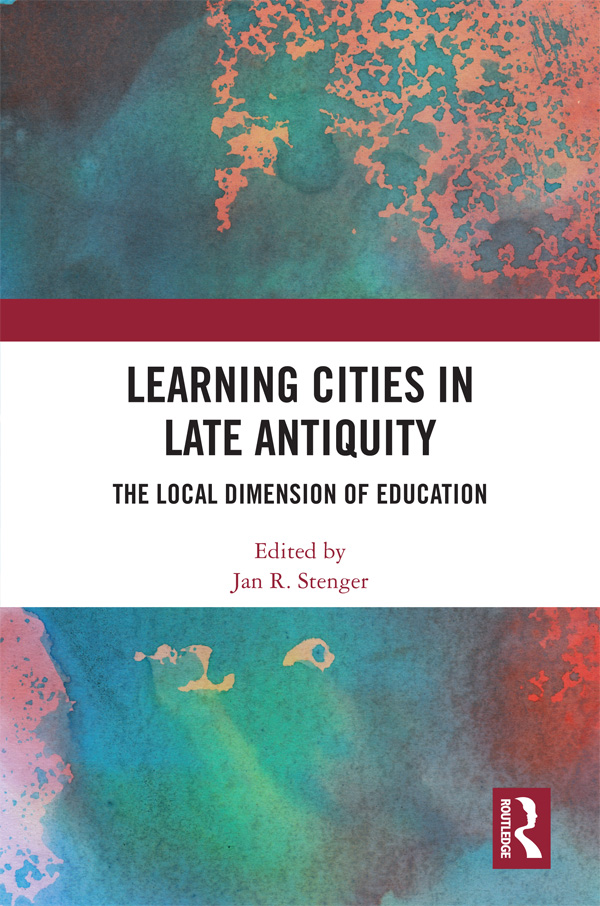
Learning Cities in Late Antiquity
Education in the Graeco-Roman world was a hallmark of the polis. Yet the complex ways in which pedagogical theory and practice intersected with their local environments has not been much explored in recent scholarship. Learning Cities in Late Antiquity suggests a new explanatory model that helps to understand better how conditions in the cities shaped learning and teaching, and how, in turn, education had an impact on its urban context.
Drawing inspiration from the modern idea of learning cities, the chapters explore the interplay of teachers, learners, political leaders, communities and institutions in the Mediterranean polis, with a focus on the well-documented city of Gaza in the sixth century CE. They demonstrate in detail that formal and informal teaching, as well as educational thinking, not only responded to specifically local needs but also exerted considerable influence on local society.
With its interdisciplinary and comparatist approach, the volume aims to contextualise ancient education in order to stimulate further research on ancient learning cities. It also highlights the benefits of historical research to theory and practice in modern education.
Jan R. Stenger is the MacDowell Chair of Greek at the University of Glasgow, United Kingdom. Before joining the Classics department at the University of Glasgow in 2012, he was Junior Professor of Classics at the Freie Universitt Berlin, Germany. He is Principal Investigator (PI) in the Cluster of Excellence Topoi, Berlin, Germany. His publications include two monographs, edited volumes and articles on Greek lyric poetry, literature and culture of Late Antiquity, and Early Christian literature. His research focusses on educational practice and thinking between c. 300 and 600 CE; he is currently working on a monograph on this topic, funded by a Leverhulme Major Research Fellowship.
First published 2019
by Routledge
2 Park Square, Milton Park, Abingdon, Oxon OX14 4RN
and by Routledge
52 Vanderbilt Avenue, New York, NY 10017
Routledge is an imprint of the Taylor & Francis Group, an informa business
2019 selection and editorial matter, Jan R. Stenger; individual chapters, the contributors
The right of Jan R. Stenger to be identified as the author of the editorial material, and of the authors for their individual chapters, has been asserted in accordance with sections 77 and 78 of the Copyright, Designs and Patents Act 1988.
All rights reserved. No part of this book may be reprinted or reproduced or utilised in any form or by any electronic, mechanical, or other means, now known or hereafter invented, including photocopying and recording, or in any information storage or retrieval system, without permission in writing from the publishers.
Trademark notice: Product or corporate names may be trademarks or registered trademarks, and are used only for identification and explanation without intent to infringe.
British Library Cataloguing-in-Publication Data
A catalogue record for this book is available from the British Library
Library of Congress Cataloging-in-Publication Data
A catalog record has been requested for this book
ISBN: 978-1-138-29987-0 (hbk)
ISBN: 978-1-315-09784-8 (ebk)
Typeset in Sabon
by codeMantra
)
Michael W. Champion is a Senior Research Fellow at the Institute for Religion and Critical Inquiry at the Australian Catholic University, where he studies Late Antiquity and Early Christianity. Recent publications include Explaining the Cosmos: Creation and Cultural Interaction in Late-Antique Gaza (OUP, 2014), Understanding Emotions in Early Europe (co-edited with Andrew Lynch, 2015) and Cultural Perceptions of Violence in the Hellenistic World (co-edited with Lara OSullivan, Routledge, 2017).
Therese Fuhrer has held Chairs of Latin at the Universities of Trier, Zurich and Freiburg, the Free University of Berlin, and, since 2013, at Ludwig-Maximilians-Universitt Munich, Germany. She is currently engaged in a number of major research projects in the field of Roman rhetoric and on the authorial voice and Roman Carthage in Latin literature. She is the author and editor of several books, including Dcadence: Decline and Fall or Other Antiquity? (with Marco Formisano, 2014), Cityscaping. Constructing and Modelling Images of the City (with Felix Mundt and Jan R. Stenger, 2015), Das antike Drama (with Martin Hose, 2017) and Augustinus, Contra Academicos, De beata vita, De ordine (Bibliotheca Teubneriana 2022, with Simone Adam, 2017). She is an associate editor of Philologus: A Journal for Ancient Literature and its Reception, Augustinus-Lexikon and Realenzyklopdie fr Antike und Christentum.
Christa Gray is a Lecturer in Classics at the University of Reading, United Kingdom, and a postdoctoral fellow at the Humboldt-Universitt Berlin, Germany, sponsored by the Alexander von Humboldt Foundation. She is the author of Jerome, Vita Malchi: Introduction, Text, Translation, and Commentary, which was published in 2015.
Fotini Hadjittofi is Fundao para a Cincia e a Tecnologia (FCT) Research Fellow at the Centro de Estudos Clssicos, University of Lisbon, Portugal. She has written on Nonnus of Panopolis, Quintus of Smyrna, Hellenistic poetry and Greek declamation. She recently translated Nonnus Paraphrase of the Gospel according to John, which is forthcoming.
Martin Hose is Professor of Greek Literature at the Ludwig-Maximilians-Universitt, Munich, Germany, and fellow of the Bavarian Academy. He works on Greek drama, historiography and literature and culture of the Roman Empire. His most recent books are A Companion to Greek Literature (ed. with David Schenker, 2016), Konstanten und Wandel in der antiken Historiographie (2016) and Das antike Drama (with Therese Fuhrer, 2017).
Muir Houston is a Senior Lecturer in the School of Education and Chair of the College of Sciences Ethics Committee at the University of Glasgow, United Kingdom. A sociologist by training, he has research interests in adult, work-based and lifelong learning, including the development and implementation of learning cities and regions, aspects of the contemporary student experience and issues of widening participation and the career and educational motivations and aspirations of young people from disadvantaged backgrounds.
Ine Jacobs is Associate Professor of Byzantine Archaeology and Visual Culture at the University of Oxford, United Kingdom. Her research interests include Late Roman and Byzantine architecture and urbanism, the reception of classical antiquity in later centuries and the archaeology of Christianity. She is the author of Aesthetic Maintenance of Civic Space. The Classical City from the 4th to the 7th c. AD. She is field director at Aphrodisias (Turkey).
Catherine Lido is a Lecturer in Psychology in the School of Education at the University of Glasgow, United Kingdom, having spent two years working with the Urban Big Data Centre on educational inclusion in the city using large-scale and novel methodology. Her PhD from the University of Sussex was in the area of gender stereotypes in occupational settings. She is a Visiting Lecturer at the University of North Carolina Wilmington, and her main interests are in the areas of stereotyping, prejudice and inclusion in lifelong learning.
Next page

